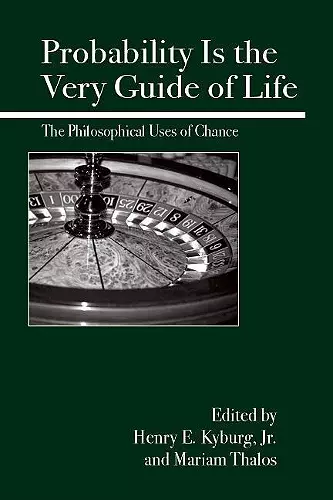Probability Is the Very Guide of Life
The Philosophical Uses of Chance
Mariam Thalos editor Henry E Kyburg, Jr editor
Format:Paperback
Publisher:Open Court Publishing Co ,U.S.
Published:22nd May '03
Currently unavailable, our supplier has not provided us a restock date

The theory of probability grew up in gaming rooms, and then in insurance companies, but was eventually applied by philosophers to all kinds of ordinary choices. That application, however, bristles with knotty problems and disagreements among the experts. This collection of philosophical essays by leading specialists in the subject looks at various technical problems in the use of probability theory for guidance in practical decisions. For those who already have a basic grounding in philosophy, logic, and probability theory, this book provides an informative sampling of the best recent work on developing an adequate conception of the use of probability theory in practical decision-making. The three standard views of probability are those of Richard von Mises, which identifies probability with limiting frequency; Carnap and his followers, which sees probability as a kind of partial entailment according to "state descriptions"; and Ramsey and Finetti (the Bayesian or subjective interpretation), which sees probabilities as tied to choices. As guides to life, each of these approaches has its shortcomings: the frequency interpretation allows many values of probability, the Carnapian or logical view fails to provide any specific values, and the subjective view can accommodate any value. Attempts to combine these approaches have also been disappointing. The contributors to this book represent a cross-section of contemporary views. They include attempts to tackle general issues, such as McGrew's discussion of Hume's assault on induction and Henderson's examination of recent attempts to reconcile Bayesian and Frequentist approaches, and the application of probability theory to specific kinds of decision, like Malinas's treatment of Simpson's Paradox or the article by Colyvan, Regan, and Ferson, which looks at the pitfalls of depending on statistical evidence to establish criminal guilt.
ISBN: 9780812695137
Dimensions: unknown
Weight: 524g
424 pages